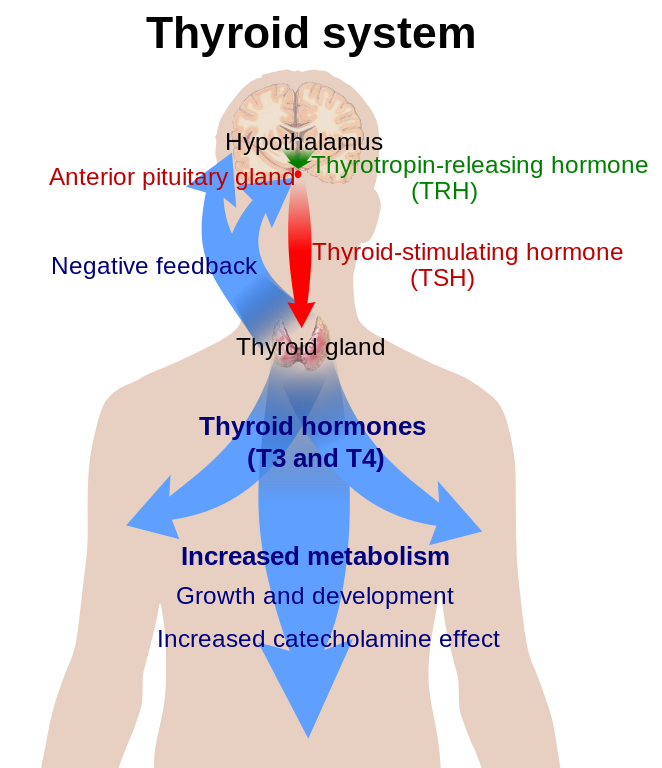Dealing with a disease day after day
April 2, 2018
I woke up on April 5, 2016, with a horrible skin reaction. My whole face was swollen with hives which nearly forced both of my eyes shut. Urgent care healthcare officials diagnosed my condition as chronic urticaria (hives) because I had no reaction to any allergens tests.
I found out from a referred endocrinologist, a thyroid specialist, that I had hyperthyroidism caused by having Graves’ disease. These conditions have continued to shape my life in unexpected and problematic ways ever since.
Hyperthyroidism, according to Mayo Clinic, is the production of too much thyroxine hormone from the thyroid that increases metabolism. The symptoms include weight loss, rapid or irregular heartbeat, sweating, and an excessive amount of energy and insomnia.
Graves’ disease is an immune system disorder that overproduces thyroid hormones. With Graves’ disease, there are complications that come into effect such as pregnancies which include miscarriage, preterm birth, fetal thyroid dysfunction, poor fetal growth, maternal heart failure and preeclampsia, heart disorders and having brittle bones.
I never expected my conditions to have such a negative impact on my life. I feel as if my whole life has plummeted. The symptoms that came along discouraged who I use to be as a student and a woman.
My endocrinologist prescribed me Methimazole to level out my thyroid levels but there came some side effects. According to my endocrinologist, the side effects include nausea, vomiting, headaches, drowsiness, dizziness, pains in my muscles, joints and nerves and weight gain.
Even though I have already seen two endocrinologists, yet I still don’t know if my condition will be with me forever. I worry every day that I have been restrained from becoming the person I want to be because of the fear my conditions will last forever.
As a freshman at CSUEB I wasn’t ever worried about things that I ate, my daily workout routines, or my three to five-hour sleeping schedule. To me, all of these things seemed positive and normal. I was always active because I was filled with such intense energy.
I noticed within two weeks of taking the medication it only made matters worse for my day-to-day basis. I was now sleeping six to eight hours a night and was taking multiple naps throughout the day. I gained five pounds which were oddly impossible to burn off. Whenever I went to workout my joints were too much in pain, and it was hard for me to lift weights or run the indoor track at the RAW.
Walking around campus became a burden. today I am still too embarrassed to walk around campus because I’m afraid my hips may give out and cause me to fall. I am afraid that students will look at me weird because I am panting while walking since my heart beat is more rapid.
Which is why whenever it comes to scheduling classes I do my best to make sure it is in the same building or close by. Even then for my first class of the day, I am sometimes late because I take my time with to minimize my hips strain. My whole right leg aches, and I have to prevent my heart from beating fast to avoid sweating.
Since my symptoms have taken a huge toll on the excessive workouts I use to do. It also majorly affected my height and weight. I weighed 130 lbs when I first started to take the medication and presently I weigh 184 lbs. It doesn’t help that I actually shrunk half an inch, as well.
Despite the symptoms, things have gotten a little better though since I was first diagnosed. Today, my thyroid stimulating hormone (TSH) level is now at 0.50 within the standard range. Which means I now have my hyperthyroidism under control.
However, the only thing that has not improved is my thyroid-stimulating immunoglobulin (TSI) level or Graves’ disease. When I first got tested my level was at 251 which is over the standard range. Unfortunately, still today I am over the standard range, my level is at 313.
I was under the impression that the medication could cure both Graves’ disease and hyperthyroidism. I did not understand that the medication would only help with my TSH level. My hyperthyroidism will only go away when I am cured of Graves’ disease.
The treatment plan to cure my Graves’ disease is to do radioactive iodine therapy that slowly shrinks the thyroid to eliminate a portion or all of the thyroid within five to seven days after the procedure. The other treatment plan is to have surgery to completely remove my thyroid.
I feel comfortable to share my story because I know now I am not alone. Last month Wendy Williams, host of “The Wendy Williams Show,” announced that she is taking a leave of absence from her show because of her Graves’ disease and hyperthyroidism. I found out through American Thyroid Association that thyroid disease affects about 20 million Americans and Graves’ disease affects one percent of Americans. Of that one percent, according to Mayo Clinic, it’s more common for women before the age of 40 to have Graves’ disease.
Speak to your primary doctor about thyroid disease whether you are male or female. It is always better to be cautious because according to American Thyroid Association, about 60 percent of the 20 million Americans are unaware of their disease.







